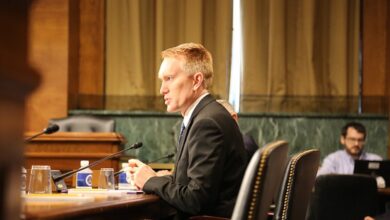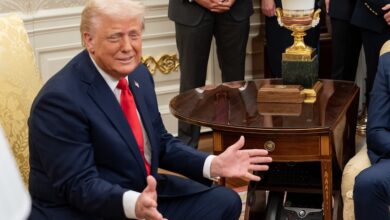Media pushes false story on breastfeeding to attack President

A front-page New York Times article claimed that, at a World Health Assembly in May, the United States opposed a resolution to encourage breastfeeding. “U.S. Opposition to Breast-Feeding Resolution Stuns World Health Officials,” blared the article’s headline.
Other media outlets picked up the story of the Trump administration versus breastfeeding mothers. Here’s a sample.
CNN: “US threatened nations over breastfeeding resolution”
NBC: “Report that U.S. suppressed breastfeeding resolution shocks advocates”
Daily Beast: “U.S. Stuns World Using ‘Blackmail’ to Oppose International Breastfeeding Resolution”
USA Today: “U.S. threatens nation over world breastfeeding resolution, shocking health officials”
The narrative was set. But was it true? President Donald Trump argued it was “fake news.”
The New York Times report mirrored sweeping and unattributed claims from activist groups. According to the Times, an anodyne and scientifically sound pro-breastfeeding resolution was expected to be approved easily. However, American delegates took the side of corporate formula makers over breastfeeding mothers. The delegates opposed governmental support for breastfeeding, as well as restrictions on “food products that many experts say can have deleterious effects on young children.”
We’re told the U.S. threatened Ecuador with punishing trade measures and the removal of military aid. Taking a break from being an all-purpose bogeyman, Russia, we’re told, saved the day and the United States was thwarted. According to the Times, the saga shows how the Trump administration backs corporations over the public good and how the Trump administration is disrupting the rules-based order.
As with much media coverage of the Trump administration, The New York Times’ extremely negative story ignoring crucial facts, was based on anonymous sources, and contained false information. Whether or not you call it fake news, at the very least the public was not well served by the story.
What Happened
Every two years the World Health Assembly convenes and discusses public health issues. In 2016, a proposal was discussed that would extend bans on marketing formulas and other supplemental nutrition. Since the 1980s, governments, non-governmental organizations, and corporations have been limited from marketing formula for infants six months of age and younger. The American Academy of Pediatrics (AAP) recommends that infants should be fed breast milk exclusively for the first six months after birth.
The 2016 discussion was about extending the ban of marketing food supplements to children as old as three years of age. The proposal was controversial even in the Obama administration. While the U.S. delegates largely went along with the crowd two years ago, they made sure the resolution was only “welcomed” at the World Health Assembly, as opposed to “endorsed.” This meant that mothers seeking information about how to feed their children could get at least some information on the products being sold and distributed to them.
Cut to 2018, when some delegates wanted to revisit the issue of limiting the marketing of non-breastmilk options for mothers, reopening some of the contentious debates from 2016. While breastfeeding is ideal, anti-formula activists can be a bit radical in their support of the ideal. As Erik Assadourian wrote in his article, “Baby formula has no place in a sustainable future“:
This is not an atypical approach for some anti-formula activists. “Baby Milk Action,” which was favorably quoted in the article, and ran much of the anti-formula marketing part of the assembly, is known for its long-running boycott of Nestlé, which makes and markets baby formula to mothers.
The United States suggested a shorter and more streamlined resolution that encouraged promoting exclusive breastfeeding as well as global initiatives to encourage breastfeeding in hospitals. Delegates from around the world debated for a few days, culminating with all member states in the room reaching consensus on a final draft.
The U.S. delegation doesn’t agree with a public health policy of keeping information away from women who are feeding their children. But that doesn’t mean that they oppose exclusive breastfeeding or its encouragement. Describing radical anti-formula efforts as “encouragement of breastfeeding,” as media reports did, is extremely tendentious.
“The Trump Administration believes it’s a public health priority that women and their families have all the information to decide how to appropriately deliver nutrition to their children, whether it is via breastfeeding or other methods,” an HHS spokesman said.
Did the U.S. Threaten Small Countries?
The New York Times says the United States threatened Ecuador and other small countries with trade and military repercussions, but it provides no evidence to support the claim outside of anonymous sources. Health and Human Services spokespeople repeatedly denied the allegation.
–The Federalist News Service






